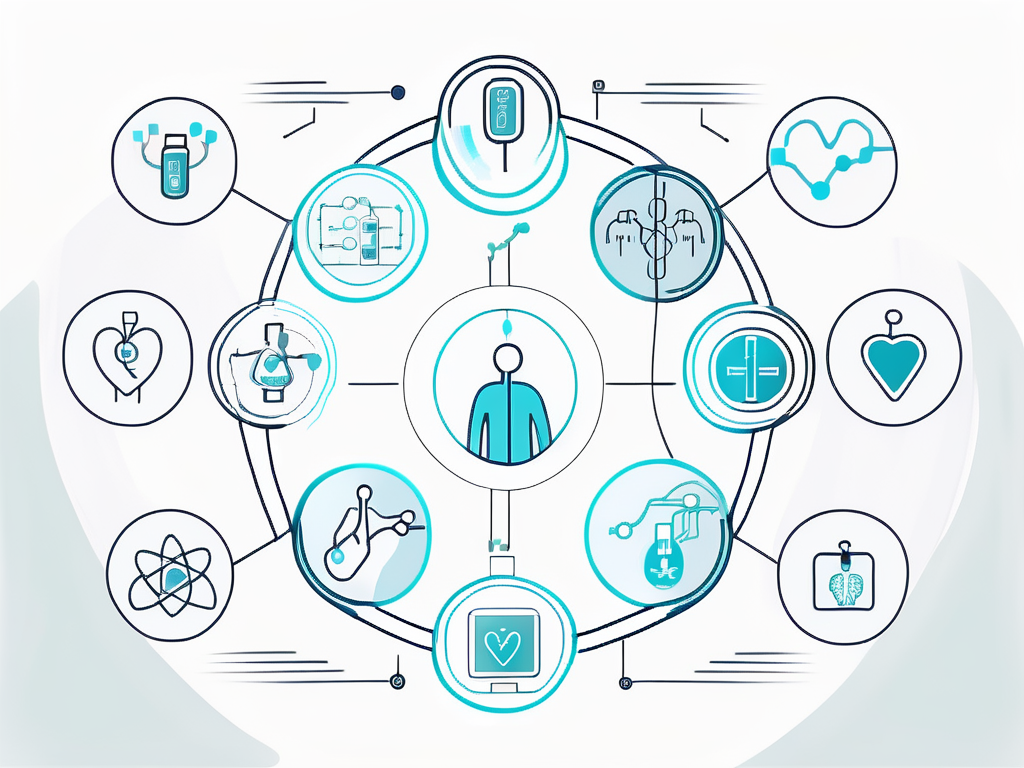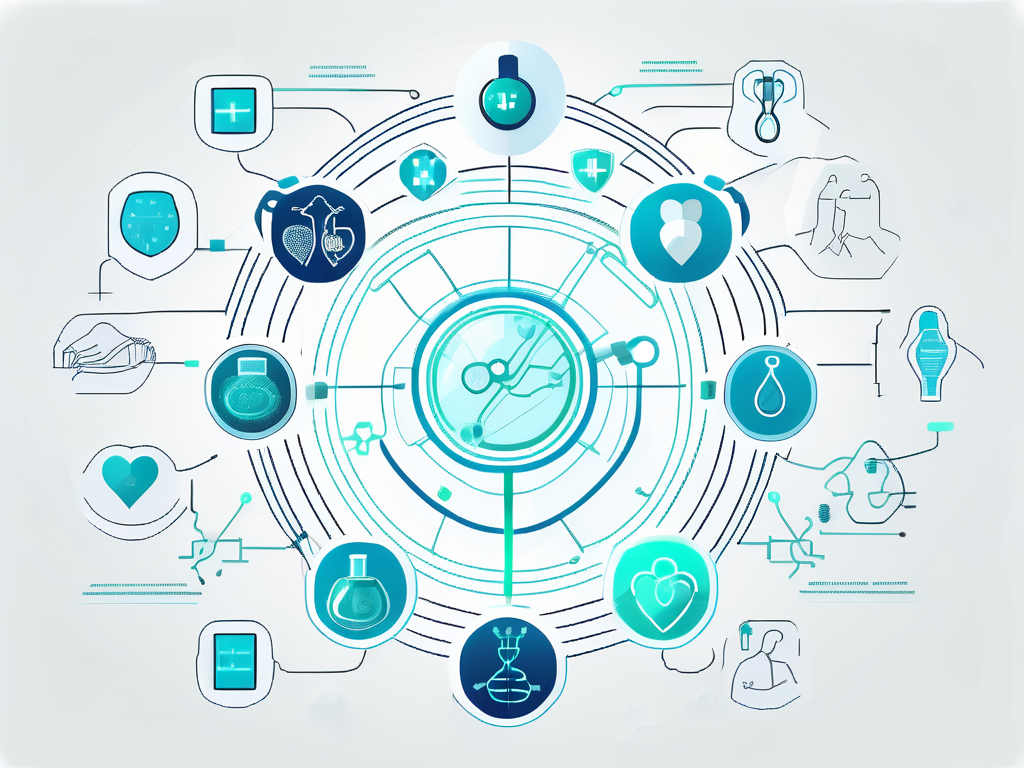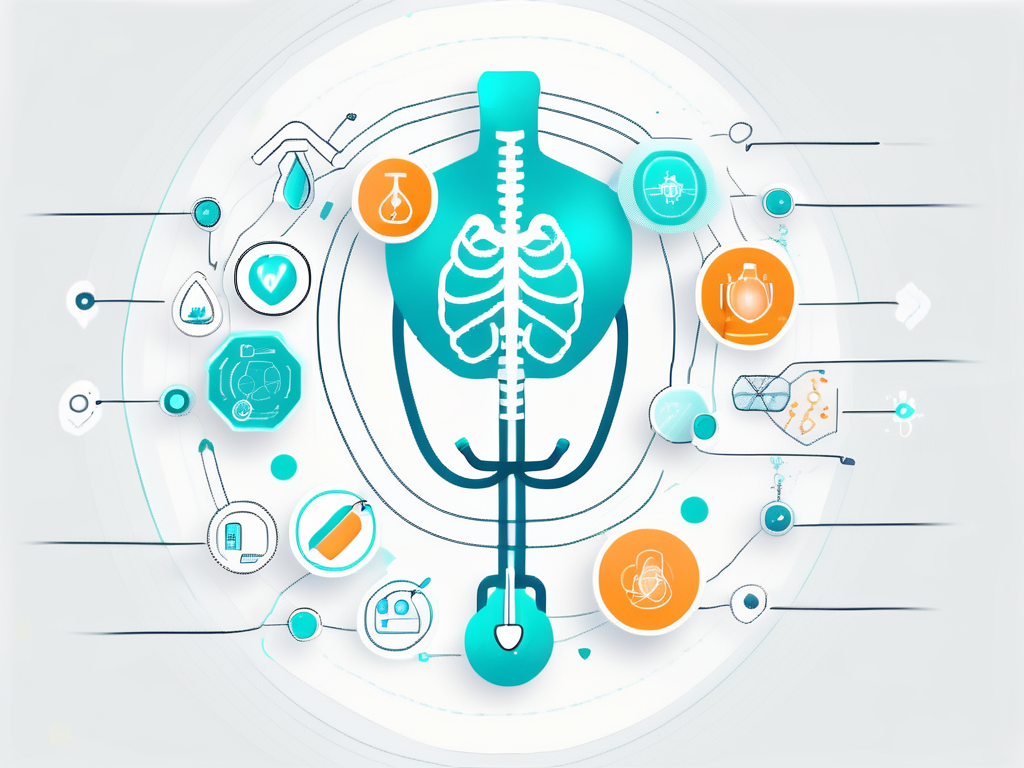Technology has revolutionized nearly every aspect of our lives, and healthcare is no exception. The digital disruption in healthcare has brought forth significant changes and opportunities for providers and patients alike. With advancements in technology, the way healthcare is delivered and experienced has transformed, making it more efficient, accessible, and personalized. In this article, we will explore the different aspects of the digital disruption in healthcare and its profound impact on the industry.
Understanding the Digital Disruption in Healthcare
Defining Digital Disruption
Digital disruption refers to the rapid integration of technology into traditional healthcare practices, resulting in a fundamental shift in how healthcare is provided. It challenges the traditional modes of operation and brings new possibilities to the forefront. This disruption is driven by innovations in areas such as telemedicine, wearable devices, electronic health records, and artificial intelligence.

The integration of technology in healthcare has not only transformed the way medical services are delivered but has also revolutionized patient engagement and empowerment. Patients now have access to a plethora of health-related information at their fingertips, allowing them to take a more proactive role in managing their well-being. From fitness trackers that monitor daily activity levels to mobile apps that provide personalized health recommendations, technology has empowered individuals to make informed decisions about their health.
The Role of Technology in Healthcare
Technology plays a pivotal role in the digital disruption of healthcare. It empowers healthcare providers with tools to enhance patient care, streamline administrative processes, and improve communication between doctors and patients. Additionally, technology enables the collection and analysis of vast amounts of data, facilitating evidence-based decision-making and personalized treatments.
Furthermore, the adoption of telemedicine has revolutionized the way healthcare services are delivered, especially in remote or underserved areas. Patients can now consult with healthcare providers virtually, reducing the need for in-person visits and improving access to medical expertise. This shift towards telehealth services has not only increased convenience for patients but has also helped alleviate the strain on traditional healthcare systems, particularly during times of crisis such as the COVID-19 pandemic.
The Impact of Digital Disruption on Healthcare Providers
Changes in Patient Care
The digital disruption in healthcare has revolutionized patient care. Healthcare providers can now remotely monitor patients, enabling early detection of potential health issues. This allows for timely interventions and improved patient outcomes. Moreover, digital platforms provide patients with access to a wealth of information, enabling them to actively participate in their own care and make informed decisions.

Furthermore, the integration of artificial intelligence (AI) and machine learning in healthcare systems has enhanced the accuracy of diagnostics and treatment plans. AI algorithms can analyze vast amounts of patient data to identify patterns and trends that may not be apparent to human healthcare providers. This advanced technology is paving the way for personalized medicine, where treatments are tailored to individual patients based on their unique characteristics and medical history.
The Transformation of Healthcare Facilities
Traditional healthcare facilities have undergone significant transformations due to digital disruption. With the rise of telemedicine and remote monitoring, patients can now receive medical consultations from the comfort of their homes. This reduces the burden on healthcare facilities and enables more efficient use of resources. Additionally, digital solutions have streamlined administrative processes, reducing paperwork and improving efficiency within healthcare organizations.
Moreover, virtual reality (VR) and augmented reality (AR) technologies are being increasingly utilized in healthcare facilities to enhance medical training and patient education. Healthcare providers can use VR simulations to practice complex surgical procedures in a safe and controlled environment, improving their skills and confidence. Patients can also benefit from AR applications that provide interactive visualizations of their medical conditions, helping them better understand their diagnoses and treatment options.
The Influence of Digital Disruption on Patients
Improved Patient Experience
Digital disruption has enhanced the overall patient experience in numerous ways. In addition to the convenience of scheduling appointments and accessing medical records online, patients now have the opportunity to engage more actively in their healthcare journey. Through patient portals and mobile apps, individuals can not only view their test results but also track their progress over time. This empowerment fosters a sense of ownership over one’s health and encourages a more collaborative relationship between patients and healthcare providers.
Moreover, the integration of artificial intelligence and machine learning in healthcare systems has enabled personalized care recommendations based on individual health data. This tailored approach not only improves the accuracy of diagnoses but also enhances treatment outcomes by considering each patient’s unique characteristics and medical history.
The Rise of Telemedicine
One of the most significant advancements brought about by digital disruption is the rise of telemedicine, revolutionizing the way healthcare is delivered. Through telemedicine platforms, patients can now consult with healthcare professionals remotely, breaking down traditional barriers to access. This is particularly beneficial for individuals residing in rural or underserved areas, where healthcare facilities may be limited. By leveraging technology to facilitate virtual consultations and remote monitoring, telemedicine has expanded the reach of medical expertise and services, ensuring that patients receive timely care regardless of their location.
Furthermore, telemedicine has proven to be instrumental in improving healthcare outcomes by enabling early intervention and continuous monitoring of chronic conditions. The seamless integration of telemedicine into the healthcare ecosystem not only enhances patient satisfaction but also contributes to the overall efficiency of healthcare delivery systems.
The Future of Healthcare in the Digital Age
Predicting Upcoming Technological Advances
The digital disruption in healthcare is an ongoing process, and we can anticipate even more technological advances in the future. Artificial intelligence and machine learning algorithms have the potential to revolutionize healthcare diagnostics and treatment. Virtual reality and augmented reality may enhance medical training and patient education. The possibilities are endless and exciting.

Preparing for the Future of Digital Healthcare
To successfully navigate the future of digital healthcare, it is crucial for healthcare providers and organizations to adapt and embrace technology. This involves investing in infrastructure, cybersecurity measures, and training healthcare professionals in utilizing digital tools effectively. Collaboration between tech companies and healthcare providers will be essential in creating innovative solutions that address the evolving needs of the industry.
In addition to the technological advancements mentioned, the future of healthcare in the digital age also holds promise for personalized medicine. With the integration of genomics and big data analytics, healthcare providers will be able to tailor treatments to individual patients based on their genetic makeup and specific health needs. This precision medicine approach has the potential to improve patient outcomes and reduce healthcare costs in the long run.
Furthermore, the rise of wearable technology and remote monitoring devices is set to transform the way healthcare is delivered. Patients will have access to real-time health data, allowing for early detection of health issues and proactive interventions. This shift towards continuous, remote healthcare monitoring has the potential to improve patient engagement and overall wellness.
In conclusion, the digital disruption in healthcare has brought about a revolution in the way we receive and provide healthcare services. From the transformation of patient care to increased access through telemedicine, the impact of technology is undeniable. As we look ahead to the future, it is vital for all stakeholders in the healthcare industry to embrace and leverage digital advancements to ensure a healthier and more connected world.
As the digital landscape in healthcare continues to evolve, staying ahead of the curve is essential for CAM practitioners and clinic owners. Join the vibrant community at Wellth Daily and receive our free newsletter, packed with proven strategies to grow your practice beyond traditional word-of-mouth. Our quick, two-minute reads provide fresh clinic growth tips every weekday, along with beautifully designed clinic resources to enhance your patient’s experience. Subscribe FREE today and start transforming your practice with the power of digital innovation.
